IIT Delhi researchers develop a Multifunctional Optoelectronic Computing Device (MOD-PC) for next-gen neuromorphic hardware.
Photo Credit: The Suncity News
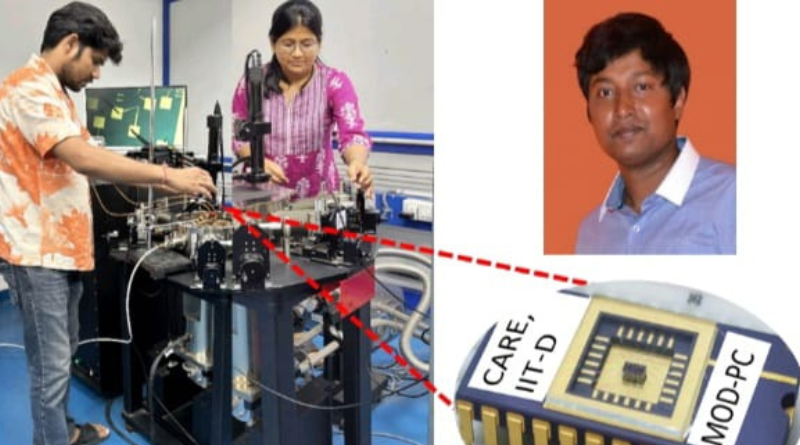
IIT Delhi, June 17, 2025: A team of researchers at IIT Delhi has developed a small and energy-efficient computing device with 2D materials technology.
The team, including Dr. Manoj Kumar and Kritika Bhattacharya and led by Prof. Dr. Samresh Das, Head of the Centre for Applied Research in Electronics (CARE), IIT Delhi, has given it a unique name: MOD-PC (Multifunctional Optoelectronic Device for Processing Circuits), inferring its capability of doing various optoelectronic signal processing functionalities.
The discovery of IIT Delhi’s researchers is more advanced technology:
So far, the market-available computers are manufactured with conventional semiconductor materials and architecture and thus are power-hungry and bulky in size.
The new replacement computing cell-MOD-PC is manufactured with light-sensitive Tungsten Diselenide (WSe2), a potential game-changing 2D material for producing the futuristic deep-scaled computing chips.
Dr. Manoj Kumar, the first author of this study, emphasized that the new computing unit developed by the research team is inspired by the visual cortex of the human brain, and thus can learn the optical light signals to emulate synaptic plasticity and store the data for long-term retention.
Dr. Kumar further added that MOD-PC not only empowers the neuroscience principles but is also capable of doing the long-time paused digital, analog, and mixed-signal functionalities within a single
Unit, leading to overcoming the memory/power-wall problems of traditional computing systems.
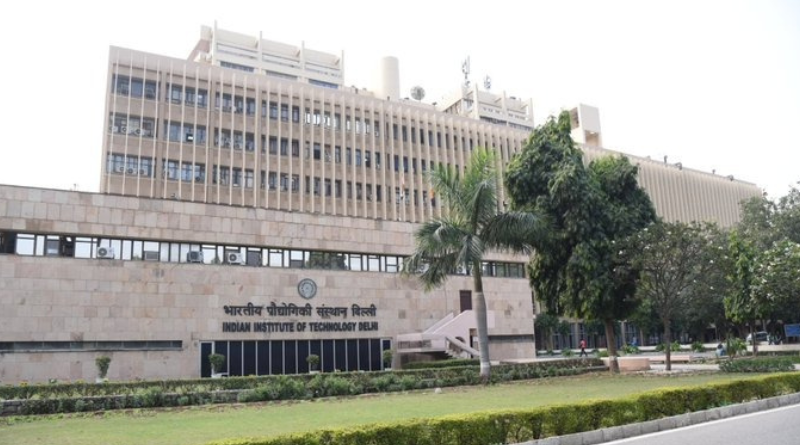
Speaking about the long-term vision, Dr. Kumar said, “MOD-PC is our indigenously manufactured and tested device at IIT Delhi, empowering the ‘Atma-Nirbhar Bharat’ and ‘Make-in-India’ spirit of the nation.”
Dr Kumar (an IIT Delhi alum) is currently working as a Post-Doctoral Scientist at TUM, Germany, focusing on the development of advanced quantum and Neuromorphic Computing systems.
Kritika Bhattacharya, senior research fellow (SRF) at IIT Delhi, was responsible for the fabrication and implementation of the MOD-PC chips.
Discussing the challenges, Kritika added that fabricating the 2D material (WSe2) based semiconductor chips with just a few Nanometer thicknesses and size was not easy; however, with consistent efforts and advanced fabrication techniques, the research team could succeed.
The MOD-PC device will help in AI technology:
Discussing the implications in day-to-day life, Prof. Samresh Das, Principal Investigator (PI) of this project, emphasized that the development of this MOD-PC device will revolutionize the Eurovision-computing hardware towards artificial intelligence and neuro-robotic applications.
Empowering the ongoing Indian Semiconductor Mission (ISM) would be a key milestone in developing advanced semiconductor chips, Prof. Das emphasized further.
Also Read: IIT Delhi inaugurated the Rekhi Mind Lab to promote happiness studies.
EOM.
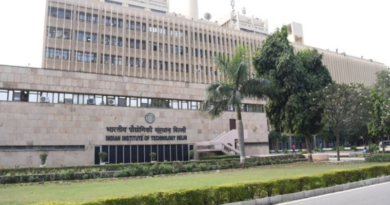
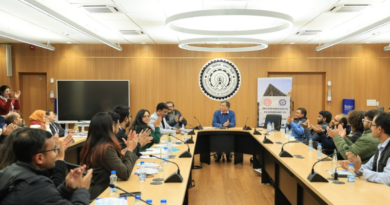
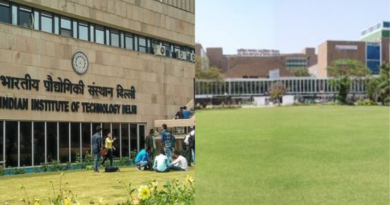
Pingback: Central Electricity Authority signs MoU with IIT Roorkee to advance power sector research and capacity building.
Pingback: Dharmendra Pradhan launches a website, Oorja Sangam, for research and academic programs on energy.
Pingback: Indusfood Manufacturing 2026 and FoodTech 4.0 were inaugurated at Yashobhoomi, New Delhi.
Pingback: Particle-to-Wave heat transport discovered in crystalline solids.